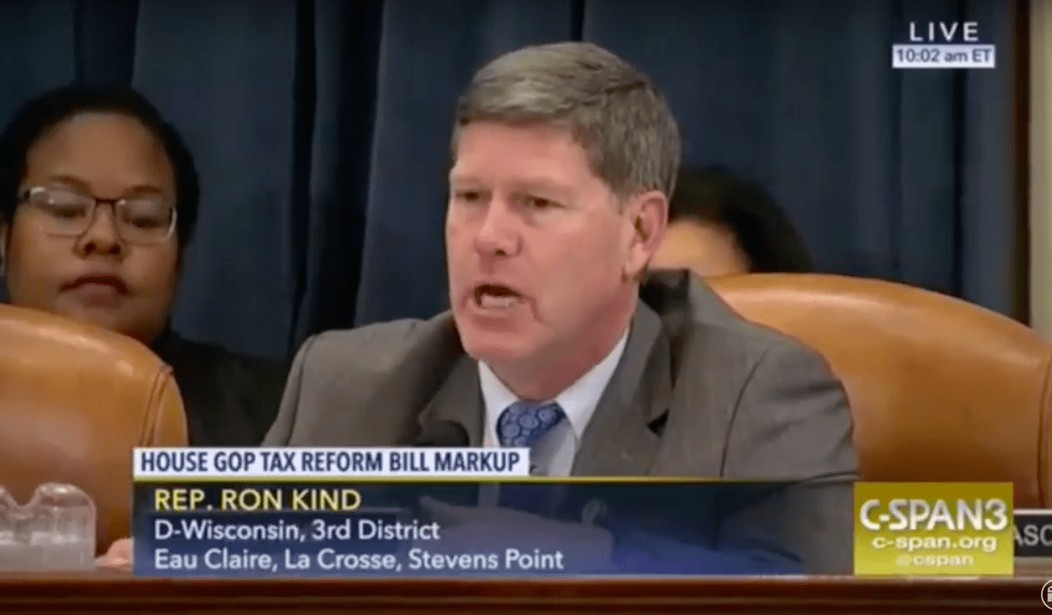On Wednesday, a Democratic congressman warned that the United States would break into conflict worse than the Middle East if the Johnson Amendment were repealed. He argued that since the Republican tax reform bill effectively repeals the Johnson Amendment, it would therefore lead to blood in the streets.
“Repealing the Johnson Amendment will politicize the pulpit, it will create civil war in the pews,” Rep. Ron Kind (D-Wisc.) declared on the House floor Wednesday morning. “You politicize the pulpit, it’s going to make the Sunni-Shia conflict in the Middle East look like a picnic.”
The Sunni-Shia conflict dates back to the early days of Islam, when Abu Bakr, Mohammed’s father-in-law, and Ali Ibn Abi Talib, Mohammed’s son-in-law, fought over the leadership of Islam. The first battles in the Sunni-Shia conflict took place in the 650s A.D.
Today, Saudi Arabia stands as the pre-eminent Sunni power and Iran as the pre-eminent Shi’ite power. The Iran-Iraq war in the 1980s, along with tensions in Iraq and even the rise of the Islamic State (ISIS) all found their roots in the Sunni-Shia conflict, as did many other wars throughout history.
The Johnson Amendment prohibits tax-exempt religious institutions such as churches, synagogues, and mosques from endorsing or opposing political candidates. President Donald Trump has promised to strike down the amendment, declaring, “Under my administration, free speech does not end at the steps of a cathedral or synagogue or any other house of worship.”
Trump directed the IRS to “alleviate the burden of the Johnson Amendment, which prohibits religious leaders from speaking about politics and candidates from the pulpit,” in his religious freedom executive order issued in May.
Critics have argued that striking the Johnson Amendment would enable donors to break campaign finance laws, skirting limitations on gifts to political candidates by giving to tax-exempt churches.
Kind’s suggestion that repealing the amendment would unleash a conflict worse than the Sunni-Shia conflict in the Middle East appears unique, however.
The congressman argued that such a move would “establish Republican and Democratic churches and synagogues and mosques overnight.”
Religious organizations tend to have political leanings already, however. As a Christian, I can testify that the best churches downplay most political issues, focusing on the gospel of Jesus Christ more than the issues of the day. Many churches already allow politics to dictate their teaching, and while a repeal of the Johnson Amendment would enable them to explicitly endorse candidates, there is little reason to suggest such an act would fundamentally alter their general political trajectory.
Either a church will sell out the gospel for politics, or it will not.
Kind did get one thing right, however. “We all know how tribal and how polarized our political system is today. We are self-segregating far too much already,” the Democrat said. This is true, and Americans need to consciously choose both to maintain friendships with people who disagree politically and to make sure politics does not define everything in their lives.
Tribalism is a serious problem in America today. Kind’s rhetoric about a conflict worse than the Sunni-Shia conflict may be ridiculous hyperbole, but he struck a nerve in warning that “there will be conflict in the streets here overnight.”









Join the conversation as a VIP Member